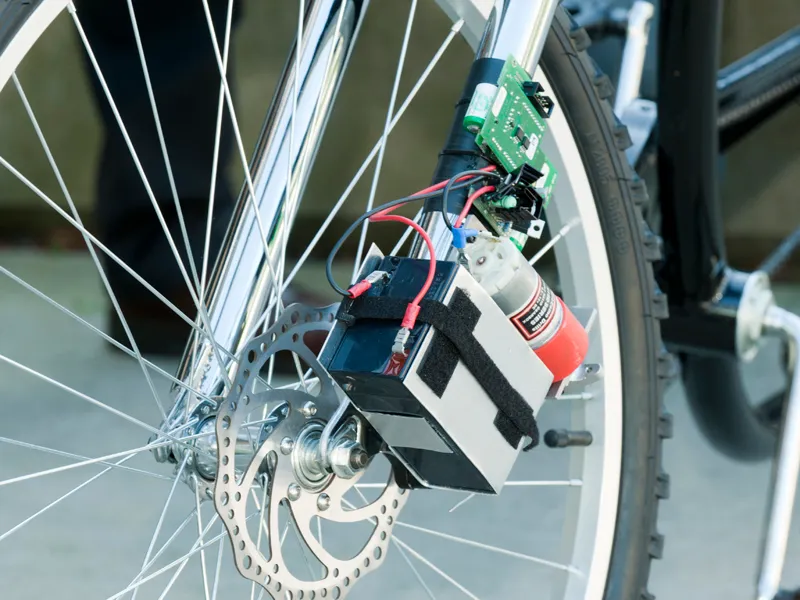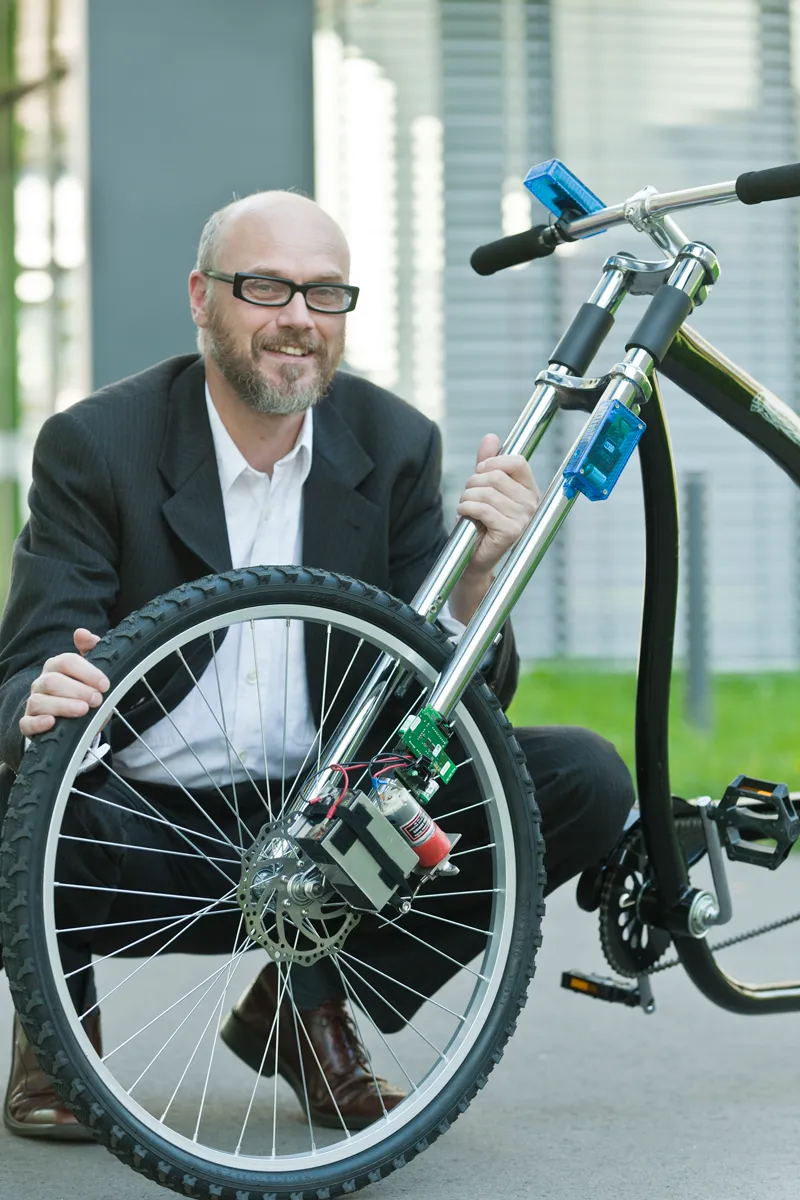Researchers lead by Dr Holgar Hermanns of Germany's Saarland University have developed a wireless bike brake with a claimed fail rate of just three times in a trillion braking attempts.
There's no brake lever; instead, the rider squeezes the right-hand handlebar grip and a pressure sensor underneath the rubber converts this into a digital, wireless signal. A unit on the fork receives the signal and an actuator works the disc brake. The harder the grip is squeezed, the more firmly the brake is applied.
The team at Saarbrücken Computer Science say the system can apply the brakes within 250 milliseconds after being actuated. The scientists say anti-lock and traction control functions could be added to increase the performance.
To give the system a reliability boost, multiple senders attached to the bicycle repeatedly send the same signal. This means it should arrive at the receiver in time, even if there's a connection delay or failure. Of the brake's claimed 99.999999999997 percent reliability, Prof Hermanns says: "That isn't perfect, but acceptable."

A unit on the fork receives a wireless signal from the handlebar grip and an actuator works the disc brake
Prof Hermanns has been in touch with bicycle manufacturers regarding commercialisation of the technology, but says that even if it never appears in the bike world, the principle his team have demonstrated is important: "In the field of the future European Train Service, for example, concrete plans already exist," he says, adding: "The wireless bicycle brake gives us the necessary playground to optimize these methods for operation in much more complex systems."
The wireless bicycle brake research was funded by the German Research Foundation. The results are documented in the scientific paper A Verified Wireless Safety Critical Hard Real-Time Design, published by the Institute of Electrical and Electronics Engineers (IEEE).
Of course, wireless technologies have long been seen on bikes in the form of computers and even Mavic's Mektronic rear shifting system from roughly a decade ago. Wireless technology is also used on Cube's range of electric bikes, which was first showcased at Eurobike 2010.

Multiple senders attached to the bicycle repeatedly send the same signal to the brakes, giving the system a reliability boost


